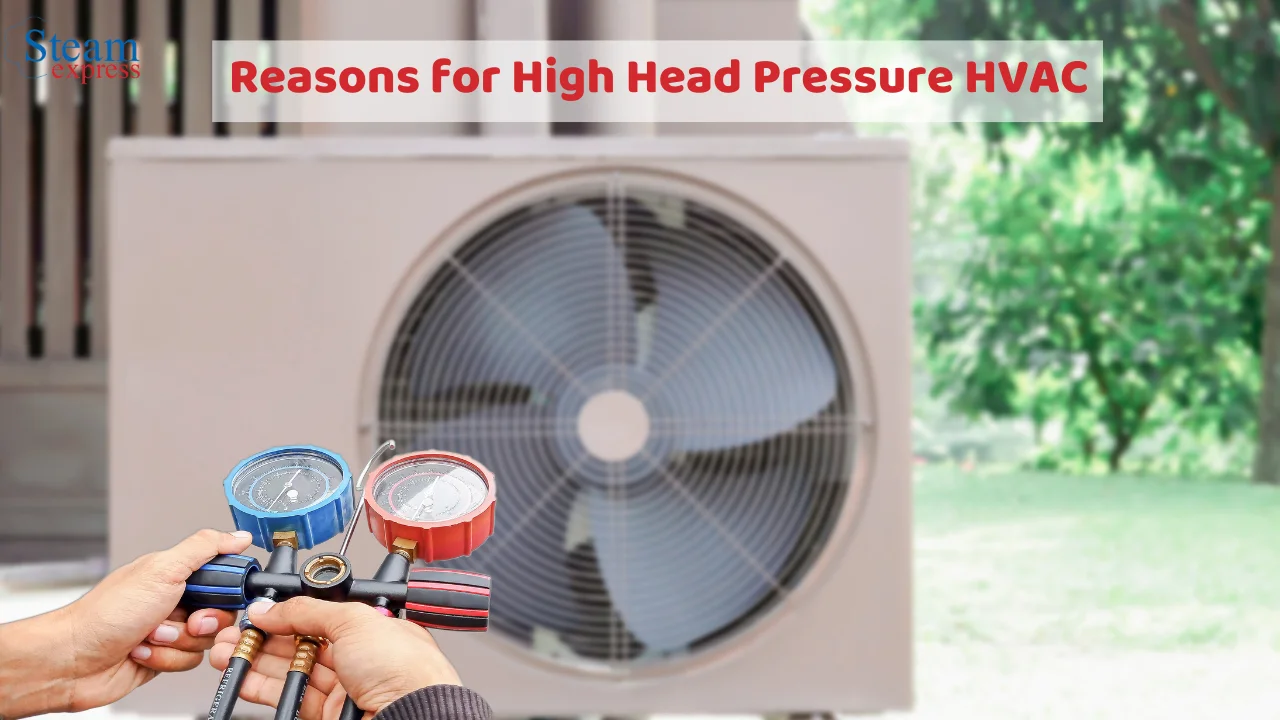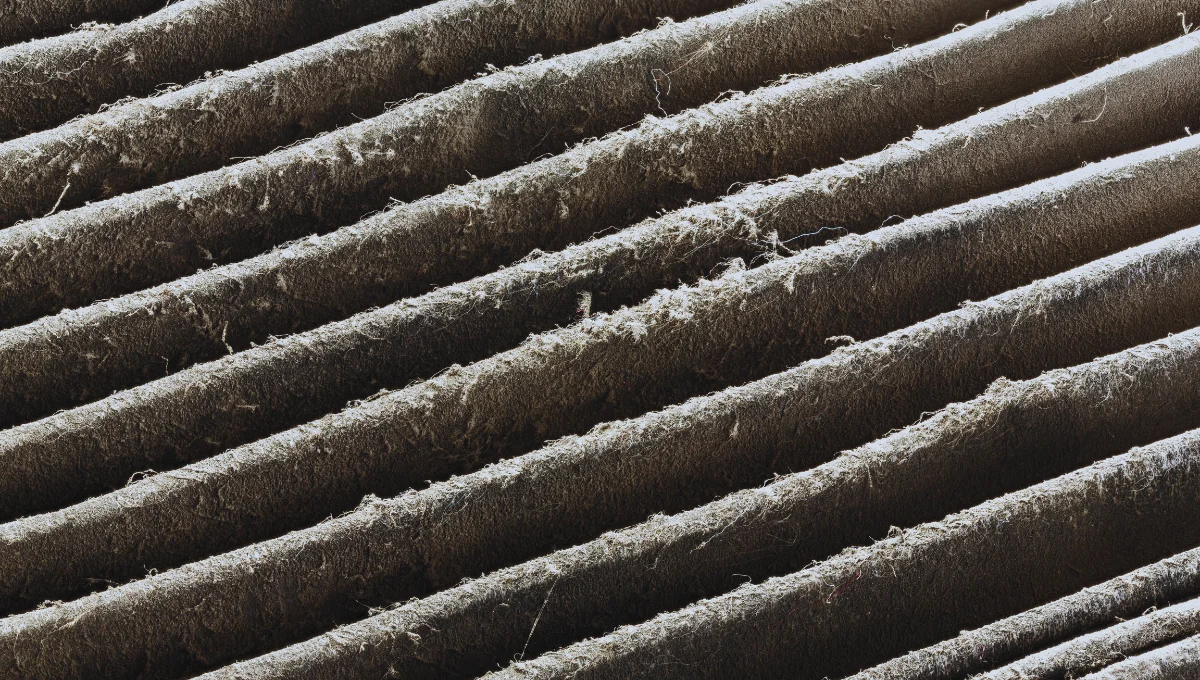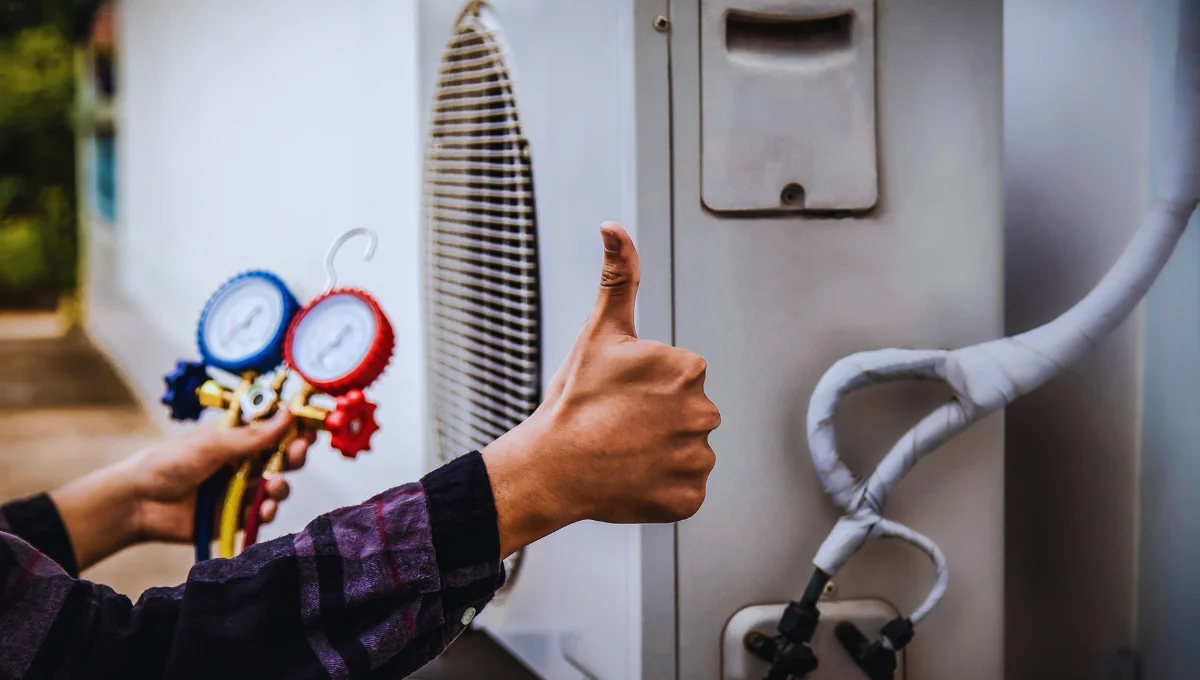Are you tired of feeling the heat when your HVAC system should be keeping things cool? Also, wondering why your energy bills seem to skyrocket out of nowhere.
If you have found yourself nodding along, you are in the right place.
Because high head pressure in HVAC systems can be a real thorn in the side.
But fear not!
As in the following discussion, we are going to have a detailed talk on the top reasons for high head pressure HVAC along with the knowledge to solve it. So, you can finally keep your system running smoothly along with ensuring the system operates at its best.
Read on to find out!
Understanding Head Pressure in HVAC Systems
In simple terms, it’s the pressure that refrigerant faces as it leaves the compressor and heads into the condenser. For instance, your compressor squeezes the refrigerant, making it super hot and pressurized. Then, that high-pressure, high-temperature refrigerant flows into the condenser, where it gets rid of all that heat, cooling down and turning into a liquid.
Now, why is head pressure important? Well, just like you need the right blood pressure to keep your body functioning properly, your HVAC system needs the right head pressure to work efficiently.
So, if the head pressure is too low, it means the refrigerant isn’t getting rid of enough heat in the condenser, which can lead to all sorts of issues like poor cooling performance and potential damage to your system.
On the flip side, if the head pressure is too high, it could mean there’s a restriction in the system or maybe your condenser isn’t getting enough airflow.
Either way, it’s like your HVAC system is working overtime, which can lead to increased energy consumption and wear and tear on your equipment, which is not good!
Why You Have High Head Pressure in HVAC?
High head pressure in HVAC systems can be a real headache. Below is a list of the top 8 common reasons why it might be happening:

Dirty Condenser Coils
First off, your condenser coils play a crucial role in releasing heat from the refrigerant into the outside air. And, with time, they can become coated with dust, dirt, pollen, and other debris. When this happens, the coils can’t effectively transfer heat, causing pressure to build up in the system. Regular maintenance, such as cleaning the coils, is essential to prevent this issue.
Restricted Airflow
Proper airflow is essential for your HVAC system to operate efficiently. Any obstructions or blockages in the vents, ductwork, or air filters can restrict the flow of air conditioning system.
Without adequate airflow, the heat transfer process is hindered, causing pressure to build up in the system. Checking and replacing air filters regularly and ensuring that vents and ducts are clear can help prevent this issue.
Faulty Condenser Fan
The condenser fan is responsible for drawing air through the condenser coils to help dissipate heat.
So, if the fan is malfunctioning or not operating at full capacity, it can’t effectively cool the refrigerant, leading to higher pressure in the system. This can be caused by issues such as a faulty fan motor, damaged fan blades, or electrical problems.
Low Refrigerant Charge
Refrigerant is what absorbs heat from indoor air and releases it outdoors. Hence, if the refrigerant charge in the system is too low, it can’t absorb as much heat, causing the system to work harder to maintain the desired temperature.
This can result in higher pressure in the system. Refrigerant leaks, improper installation, or insufficient charging during maintenance can lead to low refrigerant levels.
Ambient Temperature
Outdoor temperature can have a significant impact on the performance of an HVAC system.
That is, during periods of extreme heat, ambient temperature can increase – causing the condenser to struggle to dissipate heat effectively, leading to increased pressure in the system. This is especially true if the system is already operating near its capacity or if it’s oversized for the space it’s cooling.
Clogged Filter/Drier

The filter/drier in an HVAC system serves to remove contaminants and moisture from the refrigerant. Over time, these components can become clogged with debris, restricting the flow of refrigerant and hampering the overall heat transfer process. This, in return, increases the pressure in the system – ultimately causing high head pressure.
Faulty Expansion Valve
The expansion valve controls the flow of refrigerant into the evaporator coil, where it absorbs heat from the indoor air. Therefore, if the expansion valve is faulty or stuck open, it can allow too much refrigerant to enter the evaporator coil. This flood of refrigerant system overwhelms the coil, causing the pressure in the system to rise.
Electrical Issues
Electrical problems within an HVAC system can also contribute to high head pressure. Faulty capacitors, wiring issues, or problems with the compressor motor can cause the compressor to operate inefficiently or overheat. When the compressor struggles to function properly, it can result in increased head pressure in the system.
Effects of High Head Pressure in HVAC Systems
When it comes to HVAC systems, high head pressure is like that unwanted guest crashing your party – it causes all sorts of trouble and you just want to show it the door.
Here are the top effects of high head pressure in HVAC systems:

Strain on the System
High head pressure puts extra strain on your HVAC system, particularly on the compressor. It’s like asking your system to work overtime without a break. This strain can lead to premature wear and tear, potentially shortening the lifespan of your HVAC unit.
Reduced Efficiency
Just like trying to run a marathon in scorching heat, high head pressure makes it harder for your system to cool your space efficiently.
This inefficiency means your system has to work harder and longer to achieve the desired temperature, resulting in higher energy bills and a less comfortable environment for you.
Compressor Overload
You can think of the compressor as the powerhouse of your HVAC system. When head pressure gets too high, it puts excessive strain on the compressor, which can lead to overheating or even complete failure.
Refrigerant Issues
Refrigerant is the lifeblood of your HVAC system, and high head pressure can mess with its flow. It can cause the refrigerant to become superheated, leading to issues like decreased cooling capacity, frost buildup, or even damage to other components.
System Damage
Over time, consistently running with high head pressure can cause serious damage to various components of your HVAC system. From worn-out valves and seals to damaged coils and motors, these issues can add up to costly repairs or even premature system failure.
Prevention and Solutions
Tackling high head pressure in your HVAC system is all about being proactive and staying on top of maintenance. Here’s a breakdown of some prevention and solutions that might just save the day:
- Proper Maintenance: Just like a car needs regular tune-ups, your HVAC system requires proper maintenance. Make sure filters are clean, coils are free of debris, and refrigerant levels are in check.
- Watch Out for Refrigerant Leaks: Always keep an eye (or nose) out for any signs of refrigerant leaks. So, if you detect a leak, it’s best to call in the pros to seal it up tight.
- Mind the Outdoor Temperature: High outdoor temperatures can put extra strain on your HVAC system, leading to increased head pressure. Hence, you can consider providing shade for your outdoor unit or installing a fan to help keep things cool.
- Check the Condenser Fan: If the condenser fan is not working properly, it can lead to high head pressure. So, make sure the fan blades are clean and free of obstruction, and replace any worn-out parts as needed.
- Keep an Eye on Airflow: Poor airflow can cause all sorts of problems, including high head pressure. So, always check for blocked vents, dirty filters, or issues with ductwork that could be restricting airflow.
- Don’t Overload the System: Your HVAC system has its limits, so don’t overload it by setting the thermostat too low or trying to cool down spaces that are too large for the system to handle. Give it a break every now and then to prevent overheating.
- Regular Inspections: Schedule regular inspections with a qualified HVAC technician to catch any potential issues before they escalate. A little preventative maintenance goes a long way in keeping head pressure at bay.
Ending Notes
Congratulations, you are now a certified HVAC detective!
And with the above-mentioned knowledge of the common reasons for high head pressure HVAC systems, you are fully-equipped to deal with things like a pro.
So, the next time you feel the pressure rising, don’t sweat it—just refer back to this guide and get ready to conquer those HVAC hiccups like a champ!
FAQs
Is there a simple fix for high head pressure?
Sometimes! Regular maintenance, like cleaning coils and changing filters, can keep head pressure in check. But for serious issues like refrigerant leaks, it’s best to call in the pros.
Could my HVAC system be oversized?
If it’s too big for your space, it will cycle on and off frequently, causing pressure fluctuations and potential damage over time.
What role does the high side play in HVAC systems?
The high side of your HVAC system is responsible for pressurizing and releasing the refrigerant, working hand-in-hand with the low side to keep your space comfortable.
Can weather affect head pressure?
Absolutely! Extreme temperatures, especially on scorching summer days, can put extra strain on your HVAC system, leading to higher head pressure.

